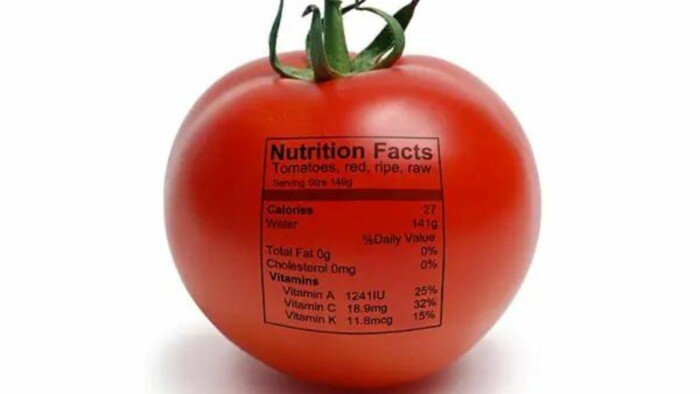|
Getting your Trinity Audio player ready...
|
Tomatoes are a popular and nutritious fruit, often used in salads, sauces, and various culinary dishes. While they offer numerous health benefits when consumed in moderation, eating too many tomatoes can lead to certain side effects. In this article, we explore the potential side effects of eating tomatoes and offer insights into maintaining a balanced diet.

Digestive Distress
Consuming excessive amounts of tomatoes can sometimes lead to digestive distress, particularly for individuals with sensitive stomachs or certain digestive conditions. The high acidity of tomatoes may aggravate symptoms such as heartburn, acid reflux, and stomach ulcers. Additionally, some people may experience bloating, gas, or diarrhea after consuming large quantities of tomatoes, as their fiber content can be difficult for some individuals to digest. Here’s how excessive tomato intake can affect your digestive system:
Aggravation of Digestive Conditions
The high acidity of tomatoes can exacerbate symptoms associated with digestive conditions such as heartburn, acid reflux, and stomach ulcers. For individuals already prone to these conditions, consuming excessive amounts of tomatoes may aggravate discomfort and lead to increased acidity in the stomach, resulting in a burning sensation or discomfort in the chest and throat.
Bloating and Gas
Tomatoes are rich in fiber, which is beneficial for digestive health. However, for some individuals, the fiber content in tomatoes can be difficult to digest, leading to bloating and gas. Excessive consumption of tomatoes may overwhelm the digestive system, causing fermentation of undigested fibers in the gut and resulting in uncomfortable bloating and excessive gas production.
Diarrhea
In addition to fiber, tomatoes also contain natural sugars and compounds that can have a laxative effect when consumed in large quantities. For individuals with sensitive digestive systems or those prone to diarrhea, eating too many tomatoes can lead to loose stools and increased bowel movements. This can disrupt the normal functioning of the digestive tract and result in discomfort and dehydration if not adequately managed.
Individual Sensitivities
It’s essential to recognize that individual tolerance to tomatoes can vary. While some people may enjoy tomatoes without experiencing any digestive issues, others may be more sensitive to certain components in tomatoes, such as their acidity or fiber content. Paying attention to how your body responds to tomatoes and adjusting your intake accordingly can help prevent digestive discomfort.
Potential Allergic Reactions
While rare, some individuals may be allergic to tomatoes or develop allergic reactions upon consuming them. Allergic reactions to tomatoes can manifest as skin rashes, itching, swelling, or even anaphylaxis in severe cases. People with known allergies to other fruits or vegetables in the nightshade family, such as potatoes or eggplants, may be at a higher risk of experiencing allergic reactions to tomatoes.
Risk of Kidney Stones
Tomatoes contain oxalates, naturally occurring compounds that can contribute to the formation of kidney stones in susceptible individuals. Consuming excessive amounts of tomatoes, especially in the form of concentrated products like tomato paste or sauce, may increase the risk of kidney stone formation. People with a history of kidney stones or those prone to calcium oxalate kidney stones should limit their intake of high-oxalate foods, including tomatoes.
Potential Interference with Medications
Tomatoes contain compounds called salicylates, which are similar to aspirin and may have blood-thinning properties. While this can be beneficial for some individuals, such as those at risk of cardiovascular disease, it may pose a risk for others, especially those taking blood-thinning medications. Consuming large amounts of tomatoes alongside certain medications may increase the risk of bleeding or interfere with the effectiveness of the medication.
Skin Sensitivity to Sunlight
Some people may experience increased skin sensitivity to sunlight after consuming large quantities of tomatoes or tomato-based products. This phenomenon, known as photodermatitis or “tomato-induced photosensitivity,” occurs due to the presence of compounds called psoralens in tomatoes. Psoralens can make the skin more susceptible to sunburn and may exacerbate existing skin conditions like eczema or psoriasis.
Potential Histamine Reactions
Tomatoes contain histamine, a compound involved in allergic reactions and immune responses. While most people can tolerate moderate amounts of histamine in foods like tomatoes without issue, some individuals may be sensitive to histamine or have histamine intolerance. Consuming excessive amounts of tomatoes may trigger histamine reactions in susceptible individuals, leading to symptoms such as headaches, flushing, or nasal congestion.
Conclusion
While tomatoes are nutritious and delicious, consuming them in excess can lead to certain side effects and health risks. It’s essential to enjoy tomatoes as part of a balanced diet and to be mindful of individual tolerance levels and dietary restrictions. By incorporating a variety of fruits, vegetables, and other nutrient-rich foods into your diet, you can maximize health benefits while minimizing the risk of adverse effects associated with excessive tomato consumption.
You will find the following information useful:




